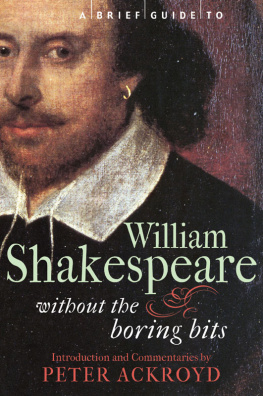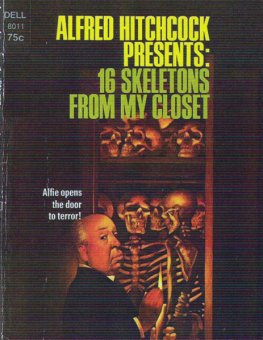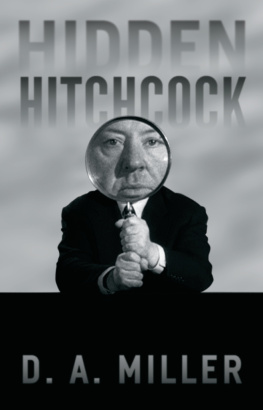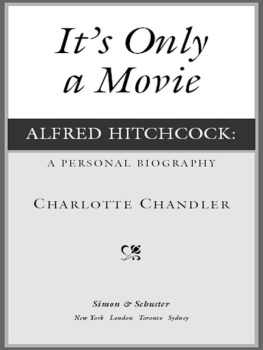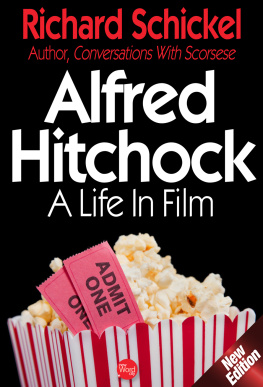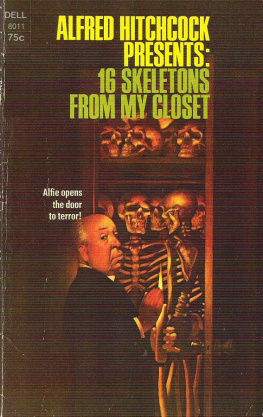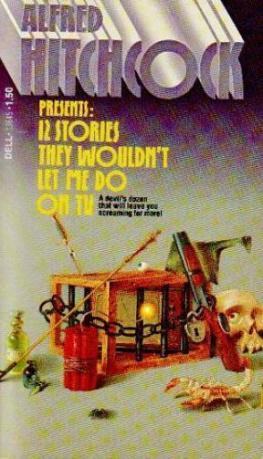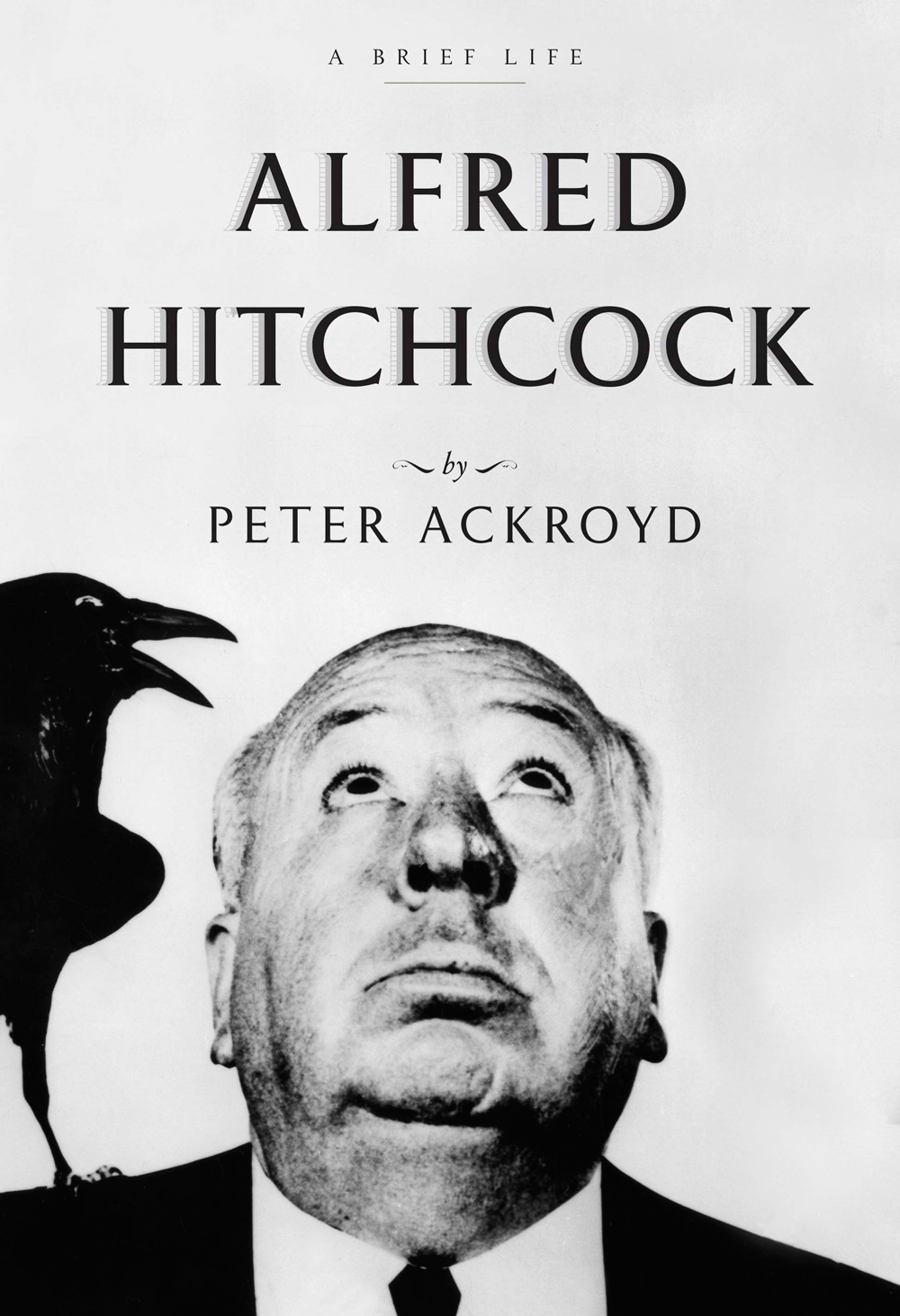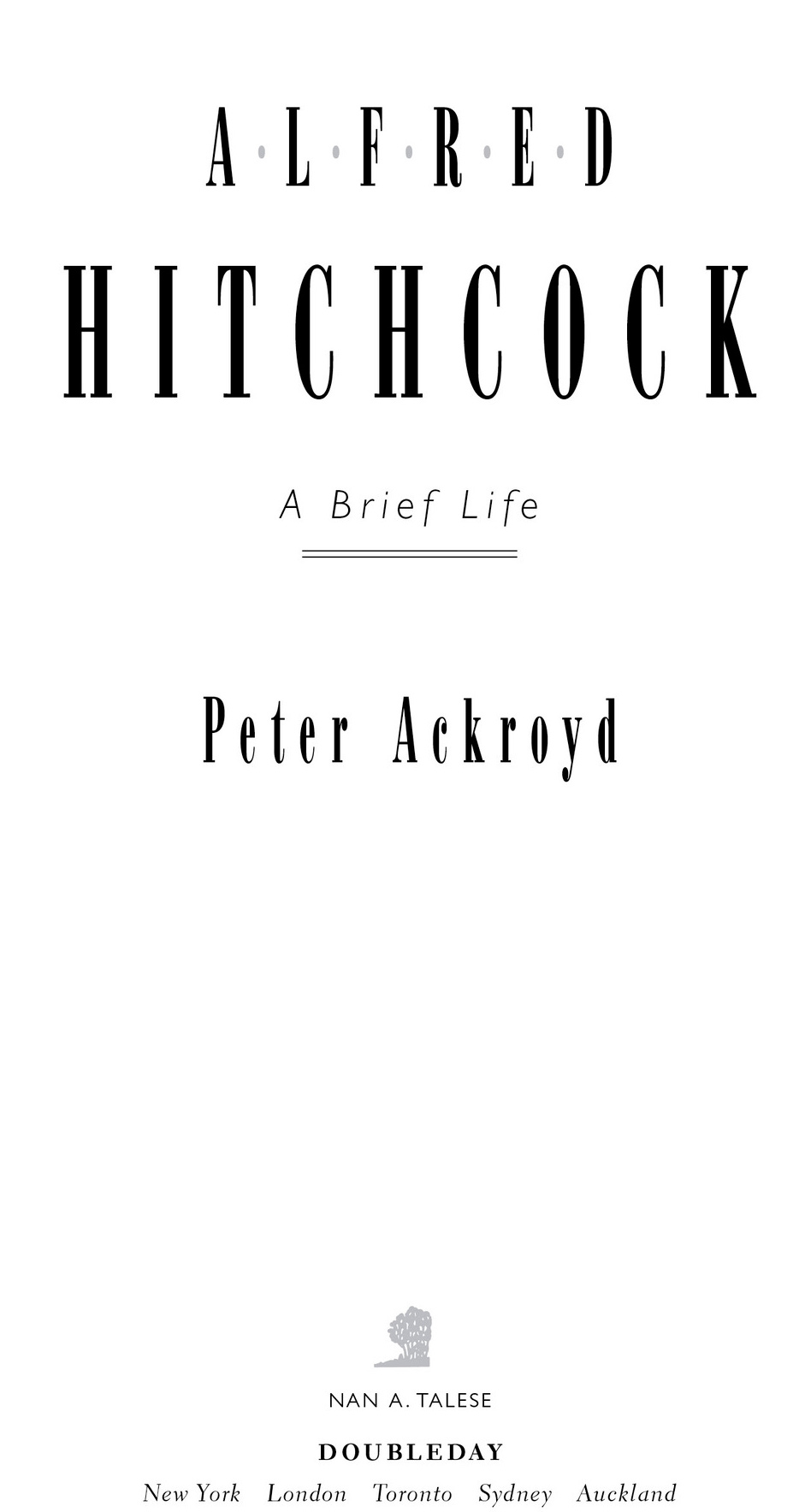Also by Peter Ackroyd
FICTION
The Great Fire of London
The Last Testament of Oscar Wilde
Hawksmoor
Chatterton
First Light
English Music
The House of Doctor Dee
Dan Leno and the Limehouse Golem
Milton in America
The Plato Papers
The Clerkenwell Tales
The Lambs of London
The Fall of Troy
The Casebook of Victor Frankenstein
Three Brothers
NONFICTION
Dressing Up: Transvestism and Drag: The History of an Obsession
London: The Biography
Albion: The Origins of the English Imagination
Venice: Pure City
London Under
BIOGRAPHY
Ezra Pound and His World
T. S. Eliot
Dickens
Blake
The Life of Thomas More
Shakespeare: The Biography
Charlie Chaplin: A Brief Life
ACKROYDS BRIEF LIVES
Chaucer
J. M. W. Turner
Newton
Poe: A Life Cut Short
Wilkie Collins
POETRY
Ouch!
The Diversions of Purley and Other Poems
CRITICISM
Notes for a New Culture
The Collection: Journalism, Reviews, Essays, Short Stories, Lectures edited by Thomas Wright
Copyright 2015 by Peter Ackroyd
All rights reserved. Published in the United States by Nan A. Talese / Doubleday, a division of Penguin Random House LLC, New York. Originally published in hardcover in Great Britain by Chatto & Windus, an imprint of Vintage Publishing, a division of Penguin Random House Ltd., London, in 2015.
www.nanatalese.com
DOUBLEDAY is a registered trademark of Penguin Random House LLC. Nan A. Talese and the colophon are trademarks of Penguin Random House LLC.
Cover design by Michael Windsor
Cover image: Alfred Hitchcock, 1963. Ullstein Bild/Getty Images
Library of Congress Cataloging-in-Publication Data
Names: Ackroyd, Peter, 1949 author.
Title: Alfred Hitchcock : a brief life / Peter Ackroyd.
Description: First United States edition.
New York : Nan A. Talese Doubleday, 2016.
Identifiers: LCCN 2016021521 (print)LCCN 2016023999 (ebook)
ISBN 9780385537414 (hardcover)ISBN 9780385537421 (ebook)
Subjects: LCSH: Hitchcock, Alfred, 18991980.
Motion picture producers and directorsGreat BritainBiography.
Motion picturesProduction and directionAnecdotes.
Classification: LCC PN1998.3.H58 A675 2016 (print)LCC PN1998.3.H58 (ebook)DDC 791.4302/33092 [B]dc23
LC record available at https://lccn.loc.gov/2016021521
Ebook ISBN9780385537421
v4.1
ep
Contents
1
THE CHILD WHO NEVER CRIED
A lfred Hitchcock was born on 13 August 1899 on the floor above his fathers shop at 517 High Road, Leytonstone; Leytonstone was by the time of his birth a soft forgetful suburb, sweltering in summer and sullen in winter. It was marked by a sense of vacancy, deriving from the time when it was simply a hamlet on the Roman road to London. It was situated five miles to the northeast of the city, and at the time of Hitchcocks birth was still nominally part of Essex, but the vast roar of London was coming ever closer. In 1856 the Great Eastern Railway arrived and Leytonstone soon became a dormitory town filled with the modestly affluent who made their way each morning into the City and its environs.
William Hitchcock was a greengrocer, selling everything from cabbages to turnips. It was as busy as any other high road, with horses and carts and carriages passing incessantly; the scent of bananas ripening, and the musty dusty odour of potatoes, were mingled with the keener stench of horse dung. The pervasive smell of manure was in fact only alleviated by the arrival of the electric tram in 1906, an event that Hitchcock vividly remembered. A photograph was taken of him and his father outside the family business on what looks to be the recently established Empire Day; he is astride a horse, no doubt the one that brought the produce from Covent Garden market. William Hitchcock was a successful merchant, whose business soon expanded, and Hitchcock told one biographer that I remember my father going to work in a dark suit with a very white starched shirt and a dark tie. In this, at least, the son came to resemble the father. William Hitchcock was also a highly nervous man, who suffered from various neuralgic conditions such as skin lesions.
Emma Hitchcock was by all accounts also smartly dressed, meticulous and dignified; like most lower-middle-class housewives, Hitchcocks mother took great delight in cleaning and polishing the appurtenances of the home. She was also adept at preparing family meals, a process she immensely enjoyed.
Hitchcock claimed he was told that, as a baby and small child, he never cried. Yet he also adverted to his terror when, as an infant in the cradle, a female relative put her face too close to his own and uttered baby noises. He also remarked that when a baby is about three months of age, the mother will try and scare it; it is an experience that supposedly both of them enjoy. On another occasion he recalled his mother saying Boo! at him when he was six months old. Even if he never cried, he was not devoid of fear.
He had an older brother, called William after his father, and an older sister, Ellen, known as Nellie; but they seem to have left no lasting impression on his life. The Hitchcocks were a deeply Catholic family, with three of his grandparents Irish Catholics amongst whom religion was instinctive and almost primordial. His father called him my lamb without a spot, and Hitchcock himself remembered standing at the foot of his mothers bed at the end of the day to recite his adventures or misadventures; it was a form of familial confession.
The family moved down to Limehouse when Hitchcock was six or seven. Limehouse had become an integral aspect of the East End of London by the latter part of the seventeenth century, when it harboured a population of some 7,000 with close connections to the river. These were the men and boys who went down to the sea in ships. In the eighteenth and nineteenth centuries it was one of the most important centres for shipbuilding in London. So now the boy can truly be claimed as a Londoner and even, by the common consent of the time, a cockney. A Chinese colony had moved into Limehouse twenty years before his own arrival, and provided another distinctive colour in Hitchcocks boyhood world.
William Hitchcock had expanded his business by purchasing two fishmonger shops in the aptly named Salmon Lane; the family lived above one of them, at number 175. The lane was a few yards north of Limehouse Basin and the Thames, so the penetrating smell of fish was compounded by the more settled odour of the murky river. In 1905, just before the Hitchcock familys arrival in the neighbourhood, Henry James wrote in English Hours that by the Thames a damp-looking dirty blackness is the universal tone. The river is almost black, and is covered with black barges; above the black house-tops, from among the far-stretching docks and basins, rises a dusky wilderness of masts.
Limehouse was a rough and raucous neighbourhood, the very essence of what was known as the stinking pile of East London. The river Lea, which runs through it, had for centuries been the site of industries banished to the outskirts of the city, among them dye works and chemical works and glue factories. In an essay that the young Hitchcock devoured, On Murder Considered as One of the Fine Arts, Thomas De Quincey described the area in 1812 as a most dangerous quarter, a perilous region replete with manifold ruffianism. It had not changed a great deal by the time of Hitchcocks arrival. It was a neighbourhood of small shops and houses standing a few feet back from the pavement, little plots of impoverished humanity. Most Londoners shunned the area. When Hitchcock was growing up here the public houses were open from early morning to half-past midnight, with a glass of gin or a half-pint of beer for a penny.


